Multisystem Inflammatory Syndrome in Children Symptoms | MIS-C | बच्चों में मल्टीसिस्टम इंफ्लेमेटरी सिंड्रोम? | कोरोना काल में MIS-C बच्चों में?
- 1.10K
- 3 years ago
Dr. Sunny Narula
Dr. Sunny Narula
Multisystem Inflammatory Syndrome in Children Symptoms | What are the signs and symptoms of multisystem inflammatory syndrome? | What is multisystem inflammatory in children? | What does MIS-C look like in children?
Multisystem inflammatory syndrome in children symptoms, In this video SimpliHealth expert Dr. Sunny Narula is talking about MIS-C(Multisystem inflammatory syndrome in children) and also he is answering some common questions like:
- What is MIS-C?
- What is the relationship between MIS-C and COVID?
- what we could do to treat MIS-C?
What is MIS-C? And What is the relationship between MIS-C and COVID?
We saw a number of cases with children being sick due to COVID, but the effect was mild. They did not face much trouble. The children were not severe enough to be admitted to hospitals. They did not get pneumonia, even during the delta variants. There were very less cases of children being affected due to covid. But after getting well, a small portion of children, 1 in 100, showed signs of a new type of disease called MIS-C.
Even in the third wave, we have covid positive patients coming in. Our experts always tell parents that the chances of children getting severe covid are very less. They may get sick for a few days, some may experience loose stool, headaches, but almost all the children recover within 2-3 days. Our expert also advises the parents to contact us in case the child gets any kind of fever within the next 3 months. This is so that we make sure the child does not develop MIS.
Symptoms of MIS-C
Falling sick and having again within 1-2 months after recovering from covid can be a symptom of MIS. Fever, along with rashes, loose stool, and vomiting. Not ever fever would be MIS. But it is important to recognize children with this syndrome. How do we recognize it? Our experts see if the child has a fever after recovering.
The fever is persistent; there is no sign of it being viral, it has been 3-4 days, the child has rashes, red eyes, other clinic signs, the child looks very sickly, then we can consider it to be MIS-C.
MIS-C Diagnosis
There is a common blood test available for this. If the child tests positive, then we take this syndrome seriously. It is a syndrome. A syndrome is a cluster of different signs.
Why is it problematic compared to other diseases? | Multisystem Inflammatory Syndrome in Children Symptoms
This is because it causes inflammation and swelling in every organ in the body. Our experts main focus is when it causes swelling in the heart and blood vessels, as it can cause permanent damage. This is why it should be taken seriously. It can cause swelling in the heart, kidney, and intestines.
There is a cluster of tests that can tell us the progression of this syndrome. Our experts obviously rule out the common causes of fever like viral, typhoid, or malaria. Once our experts make sure these are not causing the fever, we can conclude that there are chances it is MIS.
MIS-C Treatment | Multisystem Inflammatory Syndrome in Children Symptoms
In rare conditions that the child has this syndrome, it can be cured with timely treatment. Recovery chances are high when the child is treated within 5-6 days of diagnosis. The condition can worsen when the treatment is delayed, like 7-8 days after the diagnosis. The results came in late. The parents misunderstood the signs of viral fever and did not consult the paediatrician. In all these cases, delayed treatment can cause permanent damage.
The treatment for this is highly specific. It cannot be treated in the OPD. The child has to be hospitalised. And there are special injections to be given, which are a bit costly. This treatment helps the child recover.
In the end, I would say, not to panic. There are treatments available for this. If the child gets sick after recovering from COVID, consult your paediatrician immediately. Even if MIS-C is diagnosed, it is treatable most of the time. And most of the children become healthy after the treatment.





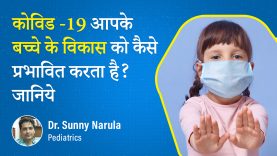
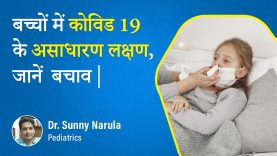
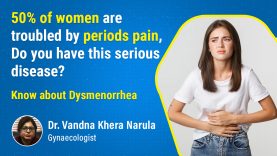
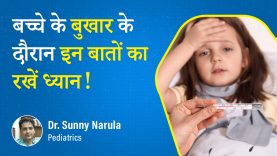
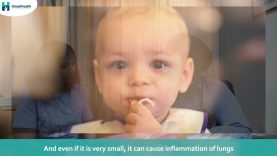
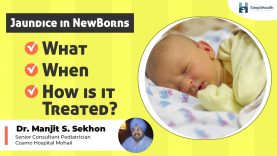
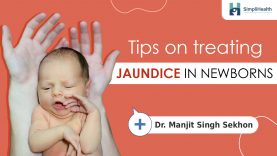
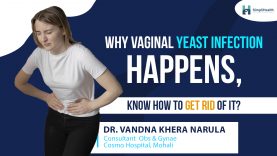
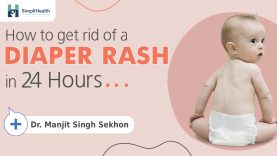
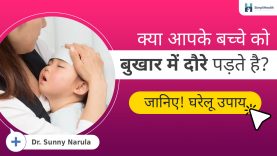
Comments (0)